Eczema On Tattoo: Risks And How To Treat It
Discover a potential skin risk of getting a permanent tattoo on sensitive skin.
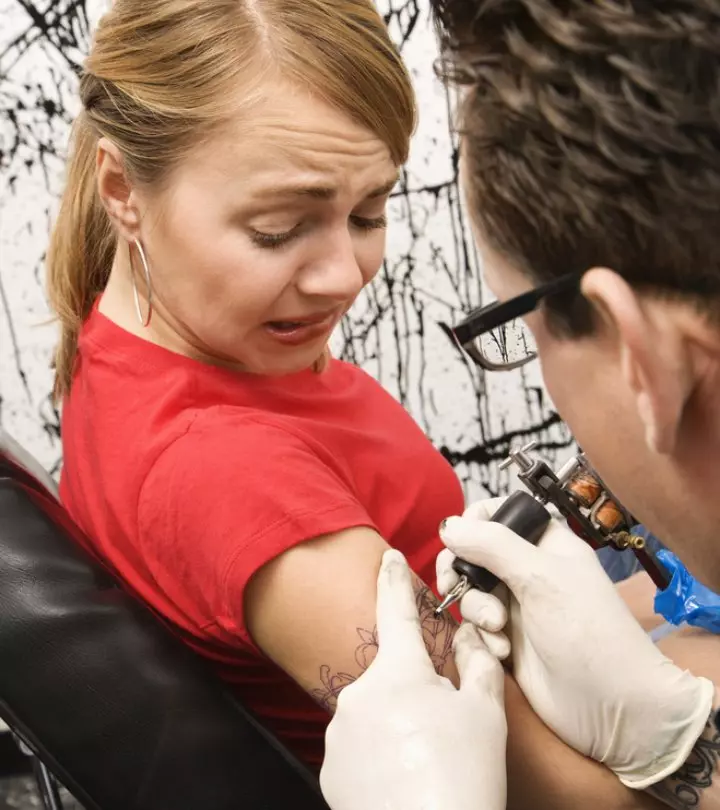
Image: Shutterstock
The appearance of eczema on your tattoo or wishing to get tattooed on an area that is frequently affected by eczema can have a negative psychological strain on people who are particular about how they look. Tattoos are only growing trendier by the day as the concept of eternalizing a memory or philosophy onto one’s skin is increasingly growing on people across ages and cultures. Although there are multiple safety concerns to go through while getting a tattoo in general, people with skin conditions such as eczema need to be extra careful. These skin conditions are exacting as they are, but getting a tattoo on top of it may make things worse.
However, since there are many medical treatments in place to cope with this condition, you may be able to manage having eczema and tattoos together. Keep reading to learn more about it.
In This Article
Can You Get A Tattoo If You Have Eczema?
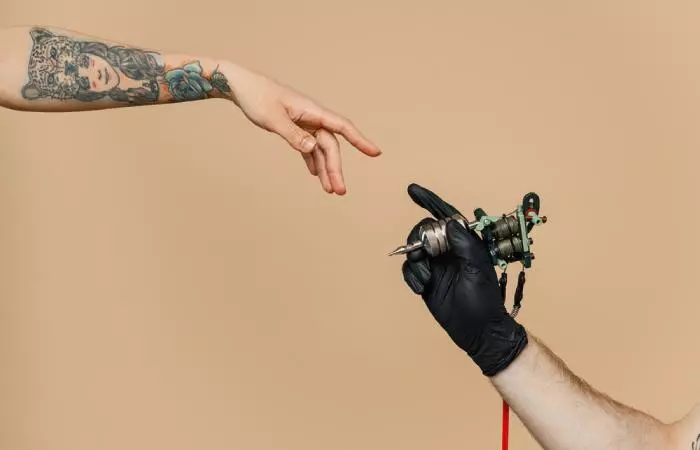
Before we look into the scope of getting tattoos with eczema, let us first understand what eczema is.
Eczema, scientifically known as atopic dermatitis, is a long-lasting inflammatory skin condition characterized by swelling, itchy skin, redness, and rough or scaly patches. Scratching or irritating the affected area may lead to bleeding, crusting, and worsened scaling. Research has been unsuccessful in figuring out what the exact cause of eczema is, but it is more commonly noted in people with a family history of the condition and immune system issues. Environmental hazards like pollution are also known to play a part in it. It commonly occurs during childhood but young adults and adults may develop the condition as well. This condition is not contagious, so it does not spread on contact (1). However, getting a tattoo on skin that is prone to severe irritation can be challenging. Continuously pricking eczema-prone skin with needles may trigger flare-ups.
Although eczema is a chronic conditioni Any human health conditions with persistent systems and long-lasting effects. They typically last longer than three months. with no cure, it can be managed in a way that it may be gone for a long period before making an unexpected comeback later. The good news here is that there are potent treatments available in the market for the management of eczema that can help manage its symptoms. So, people with ample experience with eczema, who know how to take care of their skin and manage the flare-ups, can get a tattoo done safely. Subsequently, if your condition is comparatively more severe but you really want to get a tattoo, you should consult your dermatologist and discuss your condition with experienced tattoo artists to narrow down suitable options.
Anouk, a lifestyle blogger, shares her personal experience of getting a consultation with a tattooist who was aware of her eczema condition. She writes, “I double-checked it with my dermatologist because I just left a few years of eczema behind me, and after he gave me the green light, I went to a shop in my hometown. The artist knew of my eczema so he asked if I had discussed it with my doctors. He refused to help me before I had spoken to them (i).” However, she also adds that the tattooist never instructed her on proper aftercare, neither did she know to ask, and her tattoo did not heal well.
Getting a tattoo is generally a risky process, irrespective of skin types. Unhygienic and unethical practices in tattoo shops can lead to the transmission of a number of diseases through the tattoo needles. This potential risk is elevated in cases of chronic skin conditions. Let us take a look at the reasons why getting a tattoo on eczema skin can go wrong.
Key Takeaways
- People with inflammatory skin conditions like eczema may find it challenging to get tattoos as the skin-irritating process can trigger flare-ups.
- If there is an active flare anywhere on the body, tattooing can worsen it even if it is not being done on the flare-up itself.
- Allergic contact dermatitis is associated with tattoo ink pigments, especially red ink. These allergies can manifest belatedly.
- It is important to ensure your body and mind are well rested to further ensure your body can handle the stress of the tattoo process.
Are There Risks Of Getting A Tattoo If You Have Eczema?
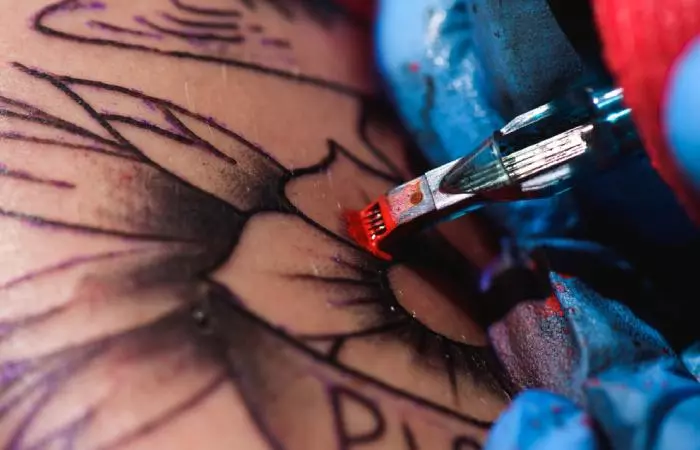
The tattoo process involves creating multiple punctures on the skin with needles to deposit ink pigments into the wounds, to create lasting marks. These marks make up the distinct tattoo patterns on an individual’s skin. But, puncturing the top layer of skin is essentially breaking through the skin’s barrier and can trigger eczematous reactions (2).
Additionally, tattoo pigments may cause hypersensitivity reactions that also exacerbate any allergies an individual may have to a tattoo artist’s latex gloves or ingredients in tattoo aftercare products. This condition is commonly called tattoo ink allergy and is commonly associated with allergic contact dermatitisi An allergic inflammatory condition of the skin that is triggered upon contact with antigens, irritant chemicals and subsequent T-cell response. . Scientific research has shown that eczema flare-ups are more common with red ink pigments that manifest as scaly and flaky rashes on the tattoo (2).
A concerning factor is that allergy symptoms from tattooing are not always immediate and may appear months or, in rare cases, years later, known as delayed-type hypersensitivity reactions (2). These can manifest as a tattoo rash with redness, swelling, burning sensation etc., adding to the complexity of managing eczema-prone skin.
Further, tattooing can have the following dermatological complications alongside allergic reactions (3):
- Superficial or deep local infections
- Systemic infectionsi An infection that affects the entire body rather than an isolated organ or body part as it is present in the bloodstream.
- Granulomatous reactionsi A chronic inflammatory reaction that is triggered as a response to various agents, including persistent infections.
- Lichenoid reactionsi An adverse reaction which may be triggered by systematic administration of certain drugs such as corticosteroids or antihistamines.
- Photodermatitisi A type of allergic contact dermatitis that closely resembles eczema and is triggered when the allergen is a light source.
These risks are associated with eczema-prone skin when the condition is under tabs. However, if the skin has active flare-ups, it is medically recommended to avoid getting a tattoo as the body is already in a heightened state of immune response and it is bound to react negatively to the tattooing process. The act of foreign bodies, such as allergens or irritants, being introduced into the skin through needles and tattoo ink pigments may aggravate flare-ups, even when the tattoo is not being done on the affected area of the skin.
Medical experts also generally advise against getting a tattoo if an individual:
- Has a history of skin lesions or other adverse skin reactions to tattoo inks
- Has a history of inflammatory skin conditions such as eczema, psoriasis, etc.
- Has a history of keloid scarringi A type of superficial scar formed during the healing of a wound when there is an excess of collagen protein in the skin.
- Is exposed to an increased risk of infections
- Has a bleeding disorder
- Is taking anticoagulantsi A type of medication that help prevent the clotting of blood. They are not favorable for wound healing as they thin the blood.
- Is taking isotretinoin, which slows down healing
- Is not vaccinated against Hepatitis B (a viral infection that affects the liver)
Despite all these tattoo complications and medical concerns, many people with eczema do get a tattoo done because of psychological reasons. One may feel tattoos, perceived as body art, may be an effective solution to feel better about their skin, others feel more in control of their condition if it is their choice to trigger it. Whatever the reason, if you decide to get a tattoo despite having eczema, it may be helpful to know how to deal with flare-ups if your tattoo triggers it.
How To Treat Eczema On Tattoo

Prevention is better than cure, and medical experts emphasize strongly on the philosophy in this scenario as well. Eczema works differently on different people; some experience symptoms almost immediately, while others experience nothing for several weeks, and a few may even find that their skin tolerates needles but aftercare ointments trigger flares. Because of these varied experiences, most skin doctors recommend taking adequate precautions and planning the preparation phase for the tattoo as well as aftercare accordingly.
Here are a few points to ensure before you go to your tattoo appointment:
- Get a good night’s sleep so that your body is well-rested.
- Drink plenty of water to keep yourself properly hydrated at all times.
- Avoid excessive sun exposure for a few days before and after your appointment. If you have a sunburn, wait till your skin is fully healed before getting the tattoo.
- Avoid blood thinning medication (for as long as the doctor advises) before and after getting the tattoo.
- Do not get tattooed on an empty stomach. Eat a proper meal prior to the session.
- Research alternative suitable tattoo wrap options as some plastic wrap and adhesive bandages may trigger allergies.
 Quick Tip
Quick TipConsequently, follow the below-mentioned steps to manage your eczema on tattooed skin and avoid tattoo infections:
- Apply Vaseline or other petroleum jelly products on the tattoo and cover it with a bandage. Keep it on for 3-7 days, as it makes peeling it off the skin easier.
- Use an unscented, mild, antibacterial soap to clean the tattoo after taking the bandage off. Allow the tattoo to air dry and heal.
- Always wash your hands before touching your tattoo until it is completely healed.
- Moisturize the tattoo if you feel the skin around it getting dry or itchy.
- Avoid touching, picking, scratching, or peeling the scabs when the tattoo is healing.
- Avoid swimming in pools as well as natural water bodies for at least 2 weeks.
- Do not allow your pets to lick or come in contact with your tattoo.
- Avoid direct sun exposure and also avoid applying sunscreen on the tattoo area until fully healed.
Adding to these, do take extra precautions and the moment you experience an itchy tattoo, seek medical and tattoo experts’ instructions and advice. Be patient if they ask you to wait until any pre-existing skin condition symptoms subside. If your skin condition only gets worse, consult a medical profession to receive proper treatment and restore good skin health.
Eczema flare-ups may get worse as a response to skin irritation during a tattoo procedure. However, getting a tattoo on eczematous skin is a fairly common practice, especially for those who want to reclaim their body from the condition. Medical experts and professional tattooists are aware of the health implications of tattooing on such sensitive skin and can guide you properly. However, keep in mind that managing your mental and physical stress and being patient is key to ensuring your body is at least halfway ready for the process. Once done with the process, keep your tattoo clean and avoid going for another session if you have active flares or your skin is in the recovery stage from sensitivity due to sun, chemical, pollution exposure, or any other condition. Remember, prevention is better than cure, so be careful with your lifestyle choices when preparing to get a tattoo on eczematous skin.
Frequently Asked Questions
Can eczema cause tattoos to become raised or bumpy?
Yes. Some people may experience raised or bumpy eczema patches on their tattoo.
Can eczema on a tattoo be contagious?
No. Eczema is generally not contagious and an eczematous tattoo is not known to be either.
Can eczema on a tattoo lead to scarring?
Yes. If you do not take proper care of your eczematous tattoo, or if your immune system takes a lot of time to heal the tattoo, you can end up with scarred tissue on top of your tattoo.
Illustration: Eczema On Tattoo: Risks And How To Treat It

Image: Stable Diffusion/StyleCraze Design Team
Tattoos on eczema may not heal in a clean way and may even have hypo- or hyperpigmentation issues. Watch this video where the YouTuber shares her experience of getting a tattoo on eczema-prone skin.
Personal Experience: Source
StyleCraze's articles are interwoven with authentic personal narratives that provide depth and resonance to our content. Below are the sources of the personal accounts referenced in this article.
(i). The big tattoo-post!https://anouksantics.wordpress.com/2017/11/23/the-big-tattoo-post/
References
Articles on StyleCraze are backed by verified information from peer-reviewed and academic research papers, reputed organizations, research institutions, and medical associations to ensure accuracy and relevance. Read our editorial policy to learn more.
- Atopic Dermatitis
https://www.niams.nih.gov/health-topics/atopic-dermatitis - Hypersensitive Reaction to Tattoos: A Growing Menace in Rural India
https://www.ncbi.nlm.nih.gov/pmc/articles/PMC5448264/ - Complications of Tattoos and Tattoo Removal: Stop and Think Before you ink
https://www.ncbi.nlm.nih.gov/pmc/articles/PMC4411590/ - Psychological Stress and Atopic Dermatitis: A Focus Group Study
https://www.ncbi.nlm.nih.gov/pmc/articles/PMC10579569/
Read full bio of Brik Rangel
Read full bio of Aparna Harry
Read full bio of Anjali Sayee
Read full bio of Pahul Nanra





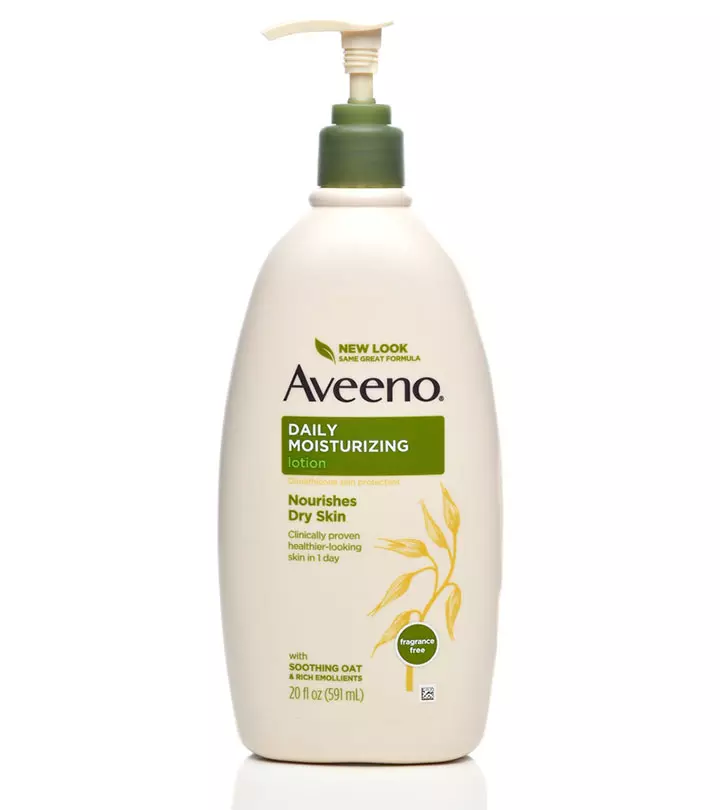
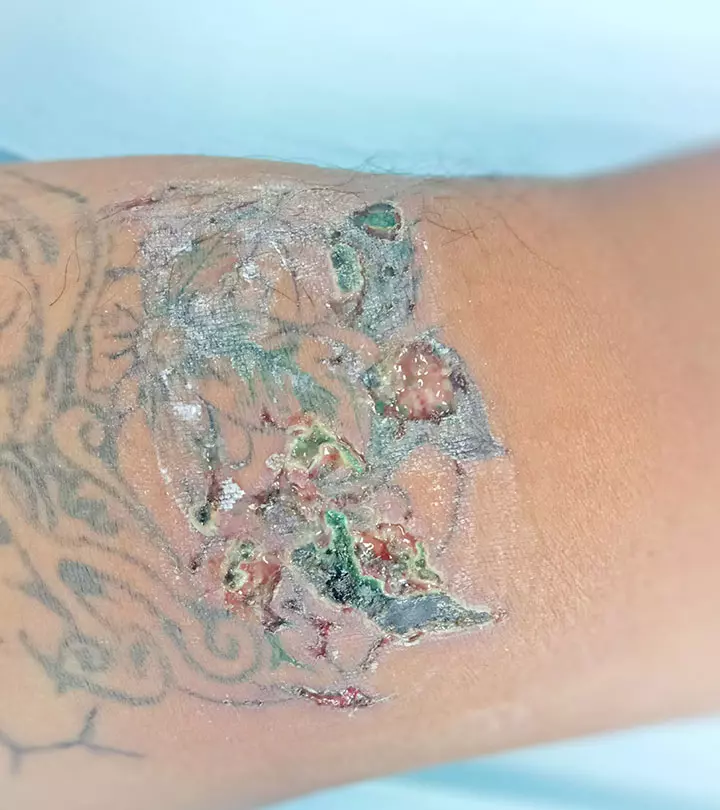

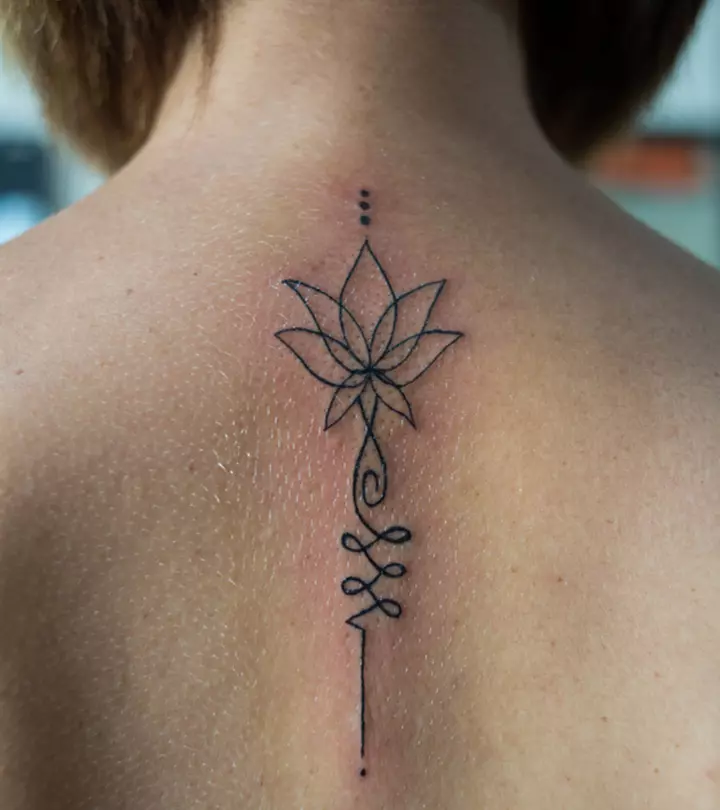

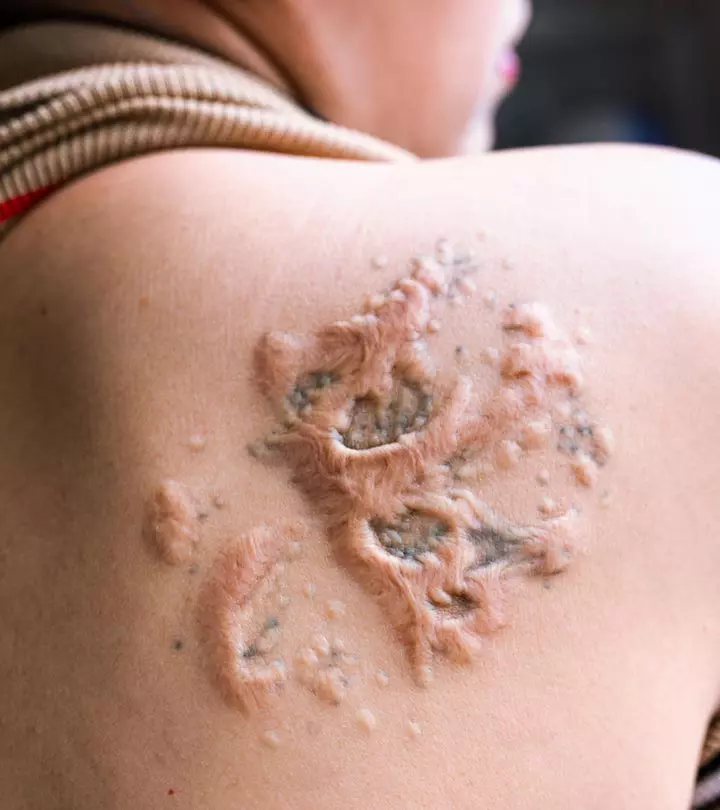

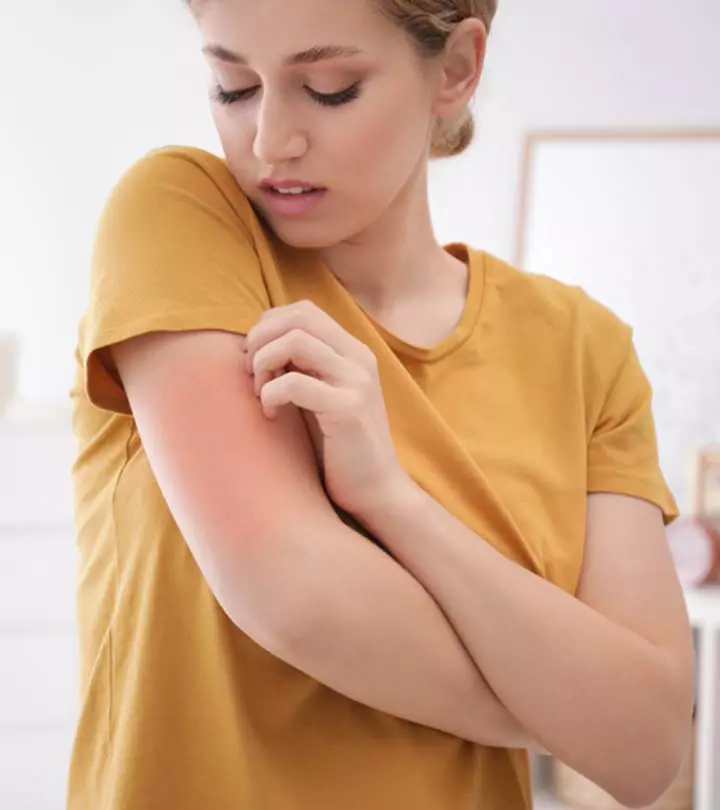
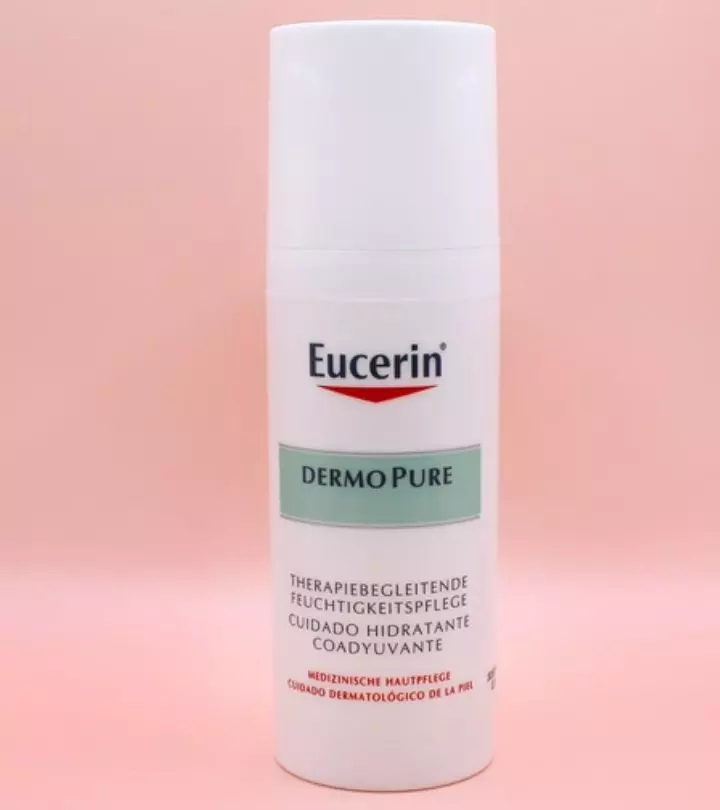




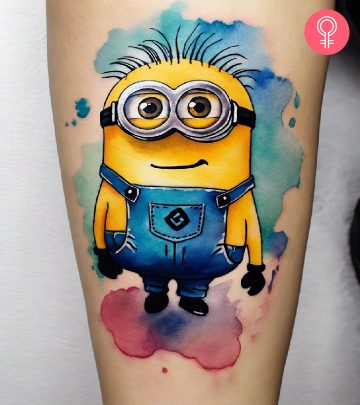
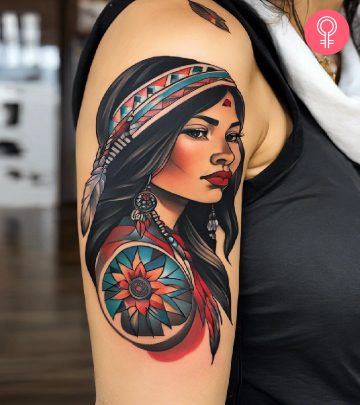
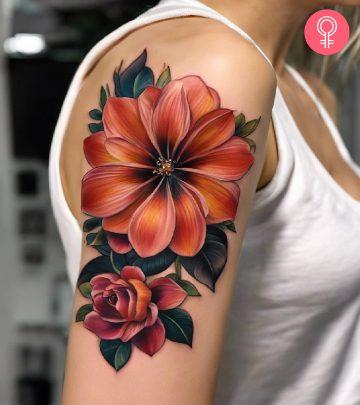

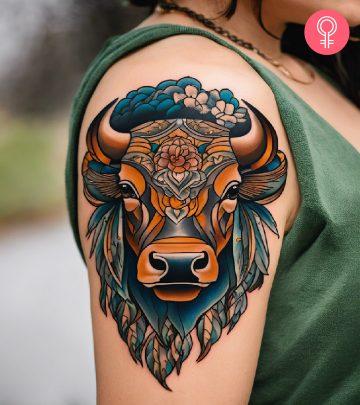


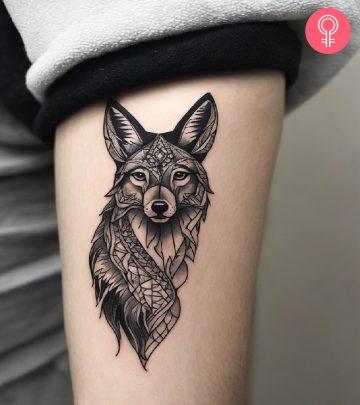
Community Experiences
Join the conversation and become a part of our empowering community! Share your stories, experiences, and insights to connect with other beauty, lifestyle, and health enthusiasts.